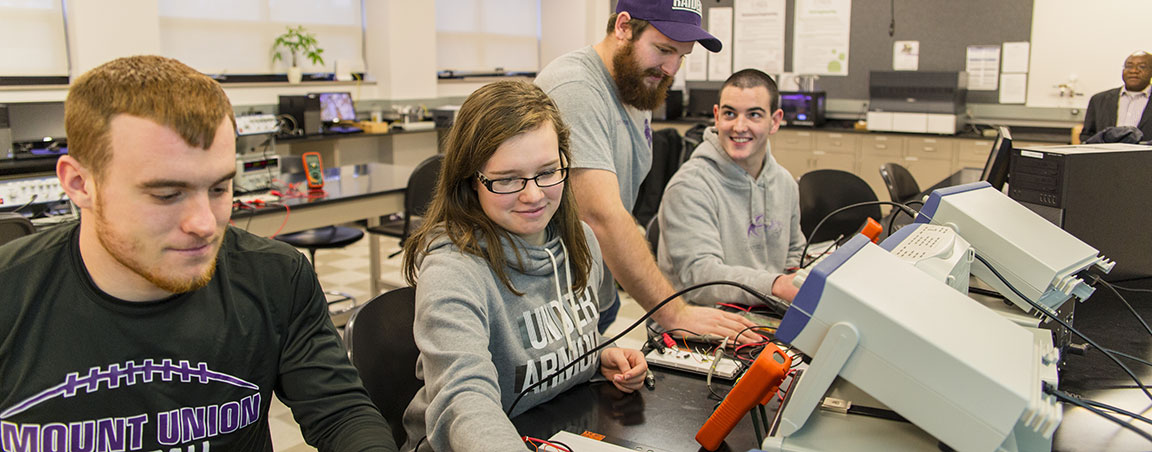The Bachelor of Science in computer engineering degree at the University of Mount Union allows students to integrate electrical engineering and computer science to design, build, and test computing systems. From processors and circuit boards to memory devices and networks, computer engineers are continuously making computing systems faster, smaller, reliable, and more mobile.
Our faculty, comprised of experts in the fields of information security (coding, operating systems, mobile computing, etc.) and computer systems (parallel processing, embedded systems, integrated circuits, etc.), work closely with students to help prepare them for a rewarding career.
The computer engineering major is housed in the School of Engineering.
Computer Engineering Quick Facts
The computer engineering program requires 134-credit hours of coursework, which also fulfills the University’s requirements for its general education program, the Integrative Core. Mount Union’s computer engineering major provides an experience that stems from its “Four Pillars of Exceptional Engineering Education”.
Why Choose Engineering at Mount Union?
- 100% placement rate to careers in industry or graduate schools for the class of 2019
- Over 94% placement rate in paid engineering internships
- Small classes with strong bonds between the students and faculty members
- Intense, hands-on education through projects, labs, internships, and field experiences
- Strong liberal arts culture that emphasizes graduating students with strong communication skills
- New and state-of-the-art labs, housed in a recently-renovated engineering building and a separate engineering lab facility
- Yearlong capstone senior design courses with projects directly from industry, narrowing the gap between real-world engineering, and education


